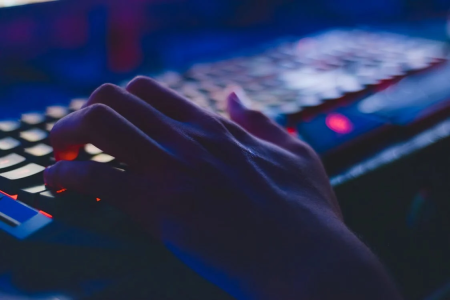Your passwords might be compromised—find out why you should be worried now
By
Maan
- Replies 15
In today's digital world, security threats are becoming increasingly sophisticated, leaving personal data exposed in unexpected ways.
A recent development has brought new concerns about the vulnerability of our most sensitive information, with consequences far beyond the average breach.
As more details emerge, it's clear that the situation is far from what we thought we knew about online safety.
In January 2025, a new report revealed alarming news—malware has stolen over 1 billion passwords.
This revelation came from the Specops Software team, which had analysed over a billion stolen credentials.
The 2025 Breached Password Report highlighted the shocking scale of the theft, which occurred over 12 months.
Among these compromised passwords, many were more complex than the standards most organisations or consumers use.
However, even passwords that met complexity requirements were still no match for malware attacks.
Darren James, senior product manager at Specops Software, stated: ‘Even if your organization’s password policy is strong and meets compliance standards, this won’t protect passwords from being stolen by malware.’
The research team found that many of the compromised passwords had exceeded length and complexity regulations.
This points to a critical issue—password reuse, which makes stolen credentials more dangerous.
The malware used in the thefts was primarily Redline, Vidar, and Raccoon Stealer.
According to Specops: ‘Hackers favour malware-stolen credentials as they’re easy to obtain, use, and sell.’
The team analysed 1,089,342,532 stolen passwords, offering a glimpse into how attackers target vulnerable accounts.
More than 230 million of the stolen passwords met common complexity standards.
Over 350 million passwords exceeded 10 characters, with 92 million of those being 12 characters long.
The data showed that a password longer than eight characters wasn’t enough to protect against modern threats.
The researchers noted that ‘long and strong’ was still the best advice when it comes to password security.
Given the vulnerabilities exposed, experts recommended using a unique password for every account.
A password manager such as 1Password or Bitwarden was suggested to keep everything secure and unique.
Consumers were urged to urgently conduct a password audit and replace any reused passwords.
Those still relying on weak or reused credentials could soon find themselves among the 1 billion compromised users.

With so much at stake, how are you securing your online accounts? We’d love to hear your thoughts—drop a comment below.
A recent development has brought new concerns about the vulnerability of our most sensitive information, with consequences far beyond the average breach.
As more details emerge, it's clear that the situation is far from what we thought we knew about online safety.
In January 2025, a new report revealed alarming news—malware has stolen over 1 billion passwords.
This revelation came from the Specops Software team, which had analysed over a billion stolen credentials.
The 2025 Breached Password Report highlighted the shocking scale of the theft, which occurred over 12 months.
Among these compromised passwords, many were more complex than the standards most organisations or consumers use.
However, even passwords that met complexity requirements were still no match for malware attacks.
Darren James, senior product manager at Specops Software, stated: ‘Even if your organization’s password policy is strong and meets compliance standards, this won’t protect passwords from being stolen by malware.’
The research team found that many of the compromised passwords had exceeded length and complexity regulations.
This points to a critical issue—password reuse, which makes stolen credentials more dangerous.
The malware used in the thefts was primarily Redline, Vidar, and Raccoon Stealer.
According to Specops: ‘Hackers favour malware-stolen credentials as they’re easy to obtain, use, and sell.’
The team analysed 1,089,342,532 stolen passwords, offering a glimpse into how attackers target vulnerable accounts.
More than 230 million of the stolen passwords met common complexity standards.
Over 350 million passwords exceeded 10 characters, with 92 million of those being 12 characters long.
The data showed that a password longer than eight characters wasn’t enough to protect against modern threats.
The researchers noted that ‘long and strong’ was still the best advice when it comes to password security.
Given the vulnerabilities exposed, experts recommended using a unique password for every account.
A password manager such as 1Password or Bitwarden was suggested to keep everything secure and unique.
Consumers were urged to urgently conduct a password audit and replace any reused passwords.
Those still relying on weak or reused credentials could soon find themselves among the 1 billion compromised users.
Key Takeaways
- A recent report revealed that over 1 billion passwords were stolen by malware, exposing vulnerabilities in password security.
- Even passwords that met complexity standards were compromised, highlighting the growing inadequacy of traditional security measures.
- Malware such as Redline, Vidar, and Raccoon Stealer was used to steal these credentials, which are easy for hackers to sell and exploit.
- Experts recommend using unique, strong passwords for every account, employing password managers, and conducting regular audits to prevent future breaches.
With so much at stake, how are you securing your online accounts? We’d love to hear your thoughts—drop a comment below.








